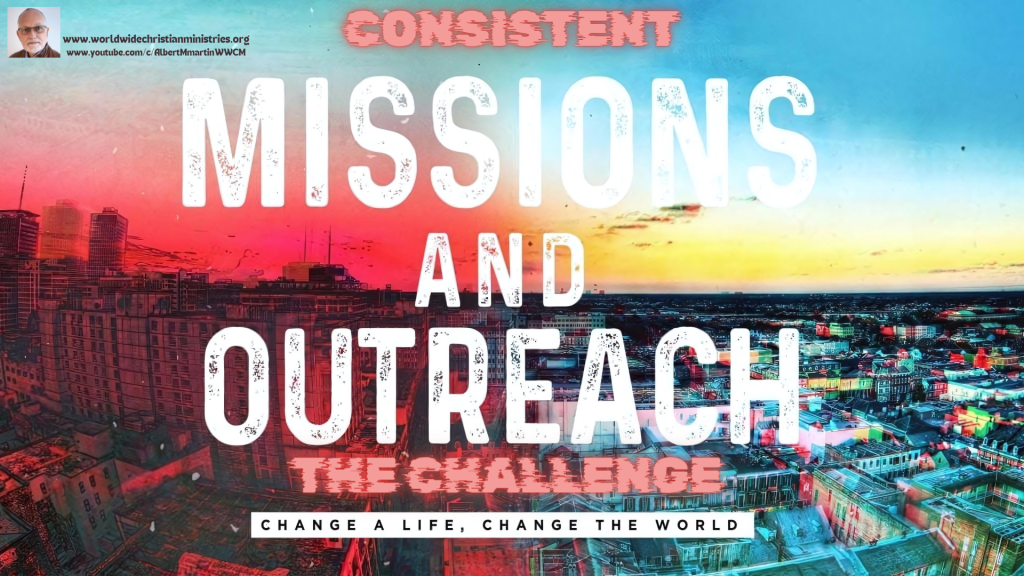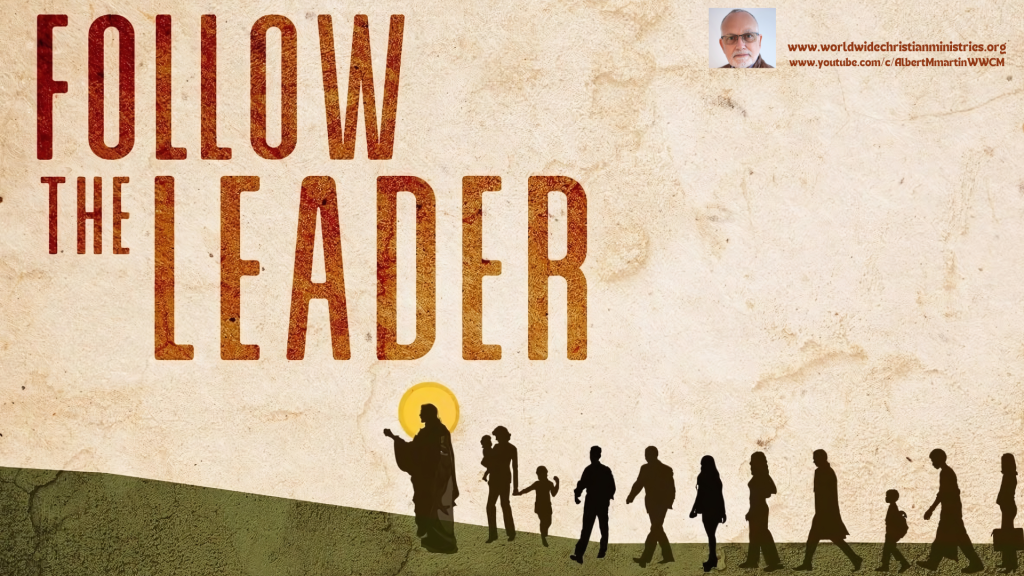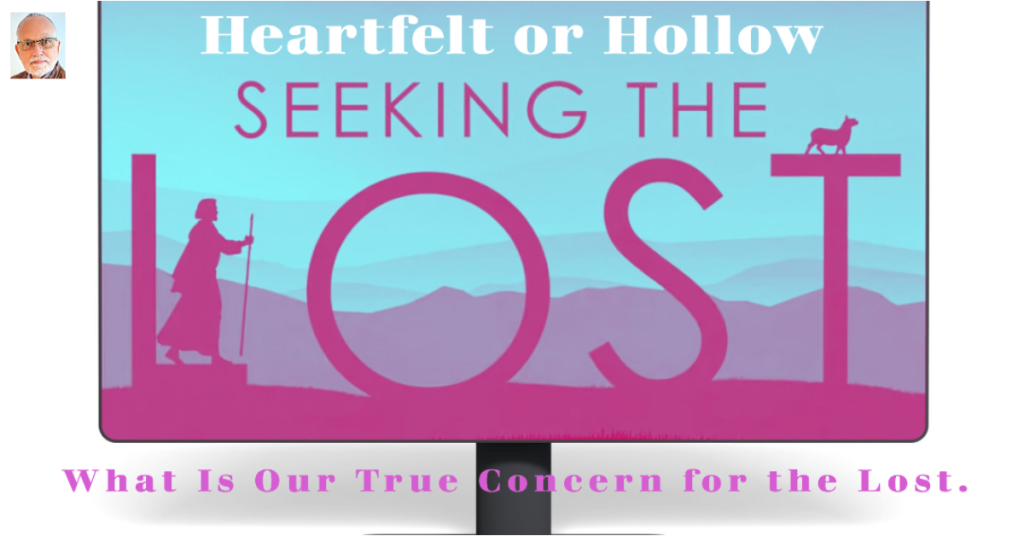
Heartfelt or Hollow What Is Our True Concern for the Lost?
The Distraction of Daily Life.

Here’s an important and searching question for all of us and which I have to regularly ask myself – “Have you ever felt too busy to notice those who don’t know God?” I’m ashamed to confess that I know I have. Balancing my work as an Evangelist, Teacher, Author, and managing YouTube and Social Media Outreach, all while working part-time 3 days a week in a secular job, it’s easy to get caught up in my own life and miss the spiritual needs of people around me and especially those who are lost.
However, recently whilst on a teaching and preaching mission trip to – Belgium, with Ukrainian, Italian, and Spanish speaking folks I was talking with a good friend about evangelism and the topic of the Ethiopian eunuch arose whose story is related to us in Acts 8 what transpired really made a new impact on me.
I’m one who believes that God already has chosen those who will be adopted into the family of – see “God decided in advance to adopt us into his own family by bringing us to himself through Jesus Christ. This is what he wanted to do, and it gave him great pleasure.” Ephesians 1:5 but without going further into the topic we are not as the Church relived from our responsibility to still evangelise. Why? Evangelise then? could be asked, and the simple answer is – Jesus instructs us to and is there any further reason we need – see Matthew ……
Gods’ methods and means are entirely within his own sovereignty, and we are wonderfully privileged to be workers together with God – see “Matthew 28:18-2” where it says – “And Jesus came and said to them, “All authority in heaven and on earth has been given to me. Go therefore and make disciples of all nations, baptizing them in the name of the Father and of the Son and of the Holy Spirit, teaching them to observe all that I have commanded you. And behold, I am with you always, to the end of the age.”
In addition, we have a great theologian in the name of John Calvin who said in relationship to “Personal and Corporate Evangelism in the Book Living for God’s Glory.”
God commands us to do so.
We should remember that the gospel is preached not only by the command of Christ but at his urging and leading.”
- We want to glorify God.
True Christians yearn to extend God’s truth everywhere so that “God may be glorified.”
- We want to please God.
Calvin writes, “It is a sacrifice well-pleasing to God to advance the spread of the gospel.”
- We have a duty to God.
“It is very just that we should labour . . . to further the progress of the gospel,” Calvin says. He adds, “It is our duty to proclaim the goodness of God to every nation.”
- We have a duty to our fellow sinners.
Our compassion should be intensified by knowing that “God cannot be sincerely called upon by others than those to whom, through the preaching of the gospel, his kindness and gentle dealings have become known.”
- We are grateful to God.
We owe it to God to strive for the salvation of others; if we do not, we are behaving in a contradictory manner. Calvin says, “Nothing could be more inconsistent concerning the nature of faith than that deadness which would lead a man to disregard his brethren, and to keep the light of knowledge . . . in his own breast.”
That all being said in the Acts 8 incident of the Ethiopian eunuch reveals how great a length those methods and means are that He goes to in order to reach even one lost person.
The incident serves as a powerful reminder in addition to those previously defined to us of all of the compelling reasons that should influence our behaviour to share the gospel, no matter the distractions in our lives.
God’s Heart for the Individual.

I’d like you to take a moment to go back to what was happening at that time when the Church was born. Think about it in the context of what was going on at the time. Stephen had become the first Church martyr was and the Church faced intense persecution. However, there was no sense of distraction in the heart and mind of God.
God was in the midst of everything focused on bringing the gospel, which he had through the Apostle Paul declared to be the “Power of God unto salvation” Romans 1:16 to one man from Ethiopia.
This event surely shows without any doubt God’s heart for individuals, no matter the chaos around. It’s like the parable in Luke 15 where the shepherd leaves ninety-nine sheep to find the one that is lost. In that story, Jesus explains, “Suppose one of you has a hundred sheep and loses one of them. Doesn’t he leave the ninety-nine in the open country and go after the lost sheep until he finds it?” Luke 15:4.
If we truly have God’s heart, and that is the question we are asking ourselves here today, we must and will be the passionate about reaching those far from Him. Just as the shepherd relentlessly seeks the lost sheep, we too must actively seek out those who are spiritually lost and bound for a Christless eternity – some of whom could be our “Brother, Sister, Child, Neighbour or Work Colleagues or Parent’s” who knows.
Being Open to God’s Direction.

Here’s a question for us as we read “Are we willing to leave our “Samaria” at a moment’s notice? To be disrupted from our safe, predictable patterns when the Lord says “Go!”? It’s a difficult precipice – the choice between playing it safe or radically obeying. Yet as we look to examples like Philip and Peter, we realise the exponential impact of yielding to God’s plans over our own.
Consider for a moment the following. Imagine you’re on the road to success, everything is going your way – your career is thriving, your ministry is bearing tremendous fruit. You’re in your groove as the saying goes, feeling confident about what lies ahead. Then right out of the blue God taps you on the shoulder and says leave all this behind and head into the unknown Crazy, right? – “Now an angel of the Lord said to Philip, “Go south to the road the desert road that goes down from Jerusalem to Gaza” Acts 8:26 Yet that’s precisely what happened to Philip in Acts 8.
This man of God was setting Samaria ablaze with the gospel message “The Gospel is the power of God unto salvation…” is the truth and reality that is so often overlooked and was patently at work. Crowds were being saved; lives were transforming – it was an extraordinary move of the Spirit. Philip’s desire would have been of course to stay put, milking this wide-open door for all it was worth. But when the angel gave him new marching orders to go to the desert road to Gaza, he went without a second thought. Why? Because he understood that radical obedience to God’s voice, no matter how bizarre the instructions may seem, always takes precedence.
His willingness to leave his comfort zone positioned Philip for a divine appointment with the Ethiopian eunuch. This opened the way for the gospel to spread into Africa. Just think of the far-reaching impact, all because one man chose obedience over self-preservation!
On a personal note of reflection, I recall with fondness when a young man, John Rees, did the same obeying the inner prompting of the Holy Spirit and as he walked up Camden Road in Tunbridge Wells in the UK which was then my hometown back in 1968. He left his comfort zone and distributed leaflets for a gospel outreach in a local Baptist Church. He gave one of these leaflets to me and as a result God utilised this small, seemingly insignificant obedient act so as a “worker together with God” 2 Corinthians 6:1 the Holy Spirit could use the Gospel Power to bring me from “Death to Life, Blindness to Sight” to bring me into the family of God on the 4th April 1968 – the result as the years went by, being many thousands of people throughout the World finding faith in Jesus Christ, being born again with hundreds being divinely miraculously healed in body.
We see this same sensitivity to the Spirit’s promptings all throughout Scripture. The apostle Peter could have easily dismissed his vision of unclean animals in Acts 10:9-16 as just some weird dream. Instead, he responded in faith when the Spirit told him to go with the men from Cornelius. His obedience shattered the dividing wall between Jew and Gentile, bringing the gospel to all nations.

Like these biblical heroes, my life took a drastic turn when I surrendered to that man of Macedonia event is Acts 16:9. It wasn’t a “Vision” but truly it may as well have been but the Holy Spirit through the words “…come over and help us” entered my spirit in an irreversible manner. The prompting some 13 years ago and my obedience birthed an ongoing incredible journey for me and for Kingdom impact, as evidenced by the expansive work and outreach of Worldwide Christian Ministries today –
reaching approximately 2000 Christians including leaders and Pastors worldwide every week.
The call remains the same for all of us who profess Christ – Stay attuned to the Spirit’s voice, and be prepared to radically obey, even when the path seems absurd or uncertain. For it’s in those critical junctures of faith that God moulds His children into vessels ablaze with holy purpose. Whenever He prompts, “Go!” may we unhesitatingly respond as Philip, Peter, and your own journey model for us.
The eternal impact of our decisions to yield is immeasurable. Will you, will I be next to continue the blaze a trail of radical obedience, allowing God to use our life for His glory in unprecedented ways? The world is watching, the open door awaits (really, they are I’m not kidding when I say that) – will we go?
The call is clear – Stay attuned to that still, small voice. Whenever He instructs, obey. For when we’re radically obedient, no matter how nonsensical it may seem, God uses our acts of faith to shape eternity.
Praying for Opportunities.

Seizing Divine Appointments – Not Seeing the Wood for the Trees.
In 2 Corinthians 5:20, we are called to be ambassadors for Christ, carrying the authority and power of the King we represent. As ambassadors, our mission is to share the message of reconciliation and hope with the world around us. However, in the midst of our daily lives, it can be all too easy to miss the opportunities that God places before us, unable to see the wood for the trees.
We live in a world filled with distractions, where the whispers of the Holy Spirit often fall on deaf and worldly distracted ears. We may find ourselves consumed by the demands of work, the responsibilities of family life, or the allure of entertainment. In this state, we risk overlooking the divine appointments that God has orchestrated for us to share His love and truth.
But what if we committed to praying for opportunities this week? What if we asked God to open our eyes and ears to the moments, He has prepared for us to be His ambassadors? By doing so, we acknowledge our need for His guidance and our willingness to step out in faith, trusting in His power to work through us.
The story of Philip and the Ethiopian man in Acts 8 serves as a powerful reminder that God is always at work, setting the stage for divine encounters. When Philip approached the Ethiopian man, he found him reading from the book of Isaiah, specifically the passage about the coming Messiah. This was no coincidence; it was a moment that God had prepared in advance.
As ambassadors of Christ, we must be attentive to the promptings of the Holy Spirit, ready to seize the opportunities He presents to us. It may be a conversation with a coworker during a coffee break, a chance encounter with a neighbour while walking the dog, or a heart-to-heart with a family member during a shared meal. These moments may catch us by surprise or even feel inconvenient, but they are the very instances in which God desires to use us to share His love and truth.
To be effective ambassadors, we must prepare ourselves by spending time in God’s Word, allowing it to transform our hearts and minds. We must be ready to listen to others with compassion, to share our own stories of transformation, and to point them to the hope that we have found in Christ.
Remember, it is not about having all the right answers but about representing the King who does.
In a world that often feels like a dense forest of distractions and competing voices, let us pray for the discernment to see the wood for the trees. Let us ask God to tune our ears to the whispers of the Holy Spirit, cutting through the worldly noise that threatens to drown out His voice. And let us step out in faith, knowing that as ambassadors of Christ, we carry the authority and power of the King we represent.
So, Church, let us commit to praying boldly for opportunities to share the Gospel this week. Let us trust that God is already at work in the lives of those around us, preparing their hearts for the message of hope and salvation. And let us be ready to seize those divine appointments, knowing that each conversation, each act of kindness, and each word of truth has the power to change an eternal destiny.

In today’s fast-paced and often overwhelming world, it’s easy to become distracted by the countless issues and priorities that demand our attention. As Christians, we are called to share the life-changing message of the Gospel with those around us, (we recognise that I hope) but all too often, we find ourselves sidetracked by discussions about moral issues or invitations to church events. While these things have their place and importance, the story of Philip and the Ethiopian in the Book of Acts serves as a powerful reminder that the heart of the matter is always Jesus Christ.
When Philip encountered the Ethiopian official on the road, he didn’t waste time engaging in peripheral topics or debates. Instead, he went straight to the source of transformation – Jesus. This simple yet profound act highlights the transformative power of focusing on the One who can truly change lives from the inside out.
In our personal lives and in our corporate evangelism efforts, we must remember that an encounter with Jesus is what people need most. It’s not about moral reform, behaviour modification, or even regular church attendance; it’s about being born again through a personal relationship with the Savior. As Jesus Himself emphasised to Nicodemus, “Very truly I tell you, no one can see the kingdom of God unless they are born again” John 3:3.
This fundamental truth should inspire and motivate us to keep Jesus at the centre of our conversations and our outreach. When we focus on Him, we create opportunities for others to experience the transformative power of the Gospel firsthand. We become conduits of grace, pointing people to the One who can heal their deepest wounds, forgive their most grievous sins, and give them the gift of eternal life.
Philip’s example challenges us to reevaluate our priorities and our approach to evangelism. In a world that is often more interested in debating issues than discovering truth, we must be intentional about directing people’s attention to Jesus and what the Word of God declares. We must engage with others thoughtfully and compassionately, stimulating their hearts and minds with the truth of who He is and what He has done for us. As we do so, we will see lives changed and communities transformed by the power of the risen Christ.
In a world that often feels dark, broken, and without hope, focusing on Jesus is the key to unlocking the abundant life that He promised John 10:10. When we encounter Jesus, we discover our true purpose and find the strength to face life’s challenges with courage and grace. This is the message that the world needs to hear, and it is our privilege and responsibility to share it.
As we go about our daily lives, let us never lose sight of the transformative power of focusing on Jesus. May we boldly proclaim the Gospel wherever we go, knowing that an encounter with Jesus is the greatest gift we can offer to those around us. And may we trust that as we faithfully point others to Him, He will draw them to Himself and transform their lives in ways we could never imagine.
In a world that is desperate for hope and meaning, let’s fix our eyes on Jesus and invite others to do the same. For it is in Him alone that we find the answers to life’s deepest questions and the power to live a life of purpose, joy, and eternal significance.
Engaging the People Around Us.

Consider the people in your life, those you encounter every day at work, those with whom you share meals, those who live just next door. Each of them is on a journey, facing their own struggles, joys, and questions about life. Have we paused to see their need for Jesus, to recognise that within each soul lies a yearning for hope, peace, and eternal love? Do we care enough to step out of our comfort zones and share the life-changing hope we possess?
The stark reality is that the majority of those we meet day by day are bound for hell if they do not know Christ. This truth is not comfortable, but it is vital. Our friends, colleagues, children, parents, and neighbours are making choices every day, and the path they choose has eternal consequences.
The reality is that we cannot change our past, but we can influence the journey ahead. We must remind them that there are choices to be made, pathways to decide upon, choices that have profound implications for their eternal destiny.
The apostle Paul challenges us in Romans 10:14 “How, then, can they call on the one they have not believed in? And how can they believe in the one of whom they have not heard? And how can they hear without someone preaching to them?” This verse isn’t just a rhetorical question, it’s a fundamental call to action. Our silence can be a barrier to someone’s salvation, a missed opportunity for them to encounter the transformative power of Christ.
Imagine the impact we could make if we took this responsibility to heart.
- Picture the joy of seeing a colleague, who once struggled with despair, light up with newfound hope because you took a moment to share the gospel.
- Think about the neighbour who always seemed so distant, now becoming a friend and fellow believer because you extended an invitation to church.
- Envision a family member, burdened by life’s pressures, finding peace in Jesus because you courageously shared your faith.
This mission isn’t reserved for pastors or evangelists alone, it’s for every believer. We are the hands and feet of Jesus in our communities. Our words and actions can illuminate the path to salvation for those around us. Each conversation, each act of kindness, and each prayer is a step toward breaking down the barriers of unbelief and bringing someone closer to Christ.
Let’s not be silent. Let’s not shy away from this divine duty. Instead, let’s embrace the opportunities God places before us to share His love and truth. Let’s be bold in our faith, compassionate in our approach, and relentless in our pursuit to spread the gospel.
For every soul matters, and every encounter is a chance to make an eternal difference. Time is of the essence, and the stakes could not be higher. Let’s rise to the occasion and shine the light of Christ into the darkness, guiding those we encounter toward the path of life and salvation.
Boldness in a Hostile Culture.

As Christian leaders today, we navigate a culture often hostile to the gospel. We live in a post-Christian era where declaring Jesus as the only way to heaven is considered politically incorrect. Yet, this truth remains a cornerstone of our faith. Jesus said, “I am the way and the truth and the life. No one comes to the Father except through me” John 14:6. When we proclaim this, we are simply echoing His words. Our commitment to this truth is crucial, regardless of societal pressures. The early Christians faced severe persecution for their beliefs, yet they remained steadfast. In Acts 4:12, Peter boldly declares, “Salvation is found in no one else, for there is no other name under heaven given to mankind by which we must be saved.”
As people of faith in today’s pluralistic world, we have the opportunity to engage in meaningful dialogue with those who hold different beliefs. While remaining committed to our own convictions, we can approach these conversations with humility, respect, and a willingness to listen and learn from others.
Our current cultural landscape is diverse, with people embracing a wide range of religious and philosophical perspectives. Rather than viewing this pluralism as a threat, we can see it as an invitation to build bridges of understanding. The Apostle Paul himself engaged with the philosophers in Athens, finding common ground and sharing the gospel in terms they could relate to Acts 17:16-34.
Embodying Christ’s Love Through Our Actions.
More than our words, it is often our actions that speak most powerfully. Mother Teresa once said, “Spread love everywhere you go. Let no one ever come to you without leaving happier.” By embodying the compassion, grace and selfless service modelled by Jesus, we bear witness to the transformative power of the gospel.
Consider for a moment the story of the Good Samaritan Luke 10:25-37. In a culture divided by prejudice, this unlikely hero demonstrated sacrificial love for a stranger in need. His actions challenged societal norms and exemplified the heart of God. Similarly, when we extend kindness, stand up for justice, and care for the marginalised, we reflect Christ to the world around us.
Recognising God’s Presence in the Lives of Others.
The Spirit of God is at work in ways that often transcend our understanding. Throughout history and across cultures, we see evidence of God’s grace drawing people to Himself. As we interact with those of different faiths, we can approach with a posture of openness, recognising that God may be speaking to them in ways we have yet to comprehend.
In John 10:16, Jesus speaks of having “…other sheep that are not of this sheep pen.” This mysterious statement hints at the expansive reach of God’s love. While we may not have all the answers, we can trust that God is pursuing people from every tribe and tongue. Our role is to faithfully represent Christ, trusting that the Spirit is at work in ways we cannot always see.
Engaging in Honest, Respectful Dialogue.
When we engage in conversations about faith, it is essential to do so with integrity and respect. Rather than seeing dialogue as a battle to be won, we can approach it as an opportunity for mutual understanding and growth. This means listening attentively, asking thoughtful questions, and sharing our own experiences with authenticity and grace.
The book of Proverbs emphasises the importance of wise speech and the power of carefully chosen words Proverbs 15:1, Proverbs 25:11. By speaking truthfully, avoiding argumentative tones, and seeking to understand the other person’s perspective, we create a safe space for genuine dialogue. Even if we disagree, we can do so with kindness and respect.
Practical Steps for Engaging Others.
Cultivate Christlike Character.
Develop the fruits of the Spirit in your life Galatians 5:22-23. As you grow in love, joy, peace, patience, kindness, goodness, faithfulness, gentleness, and self-control, you will naturally reflect Christ to others.
- Practice Active Listening.
Give others your full attention. Listen to understand, not just to respond. Show genuine interest in their stories and perspectives.
- Ask Thoughtful Questions.
Engage others with sincere curiosity. Ask about their beliefs, experiences, and what brings them meaning and purpose. Be open to learning from their insights.
- Share with Vulnerability.
Be willing to share your own struggles, doubts, and journey of faith. Authenticity invites authentic connection.
- Extend Unconditional Love.
Love others without stipulations. Serve them selflessly, pray for them regularly, and be a consistent friend, regardless of their response to the gospel.
At the end of the day, we have to trust in God’s Sovereignty and why? Because ultimately, it is God who draws people to Himself. Our role is to faithfully represent Christ, but the outcome is in His hands. We can trust in God’s sovereignty, knowing that He is weaving a grand tapestry of redemption that extends far beyond our limited perspectives.
The Apostle Paul planted, Apollos watered, but God gave the growth is what 1 Corinthians 3:6 tells us. As we engage in conversations and live out our faith, we can rest in the assurance that God is at work, even when we cannot see the full picture. Our job is to be faithful in the daily opportunities He provides, trusting Him with the results.
Engaging with Grace and Truth.
Though we may not always see immediate results, we can trust that every interaction is a seed planted, a step taken in the journey of faith. As we abide in Christ and allow His love to flow through us, we become conduits of His grace to a world in need.
May we be known not just for how we love but also though what we believe.
Standing Firm in and for The Truth.
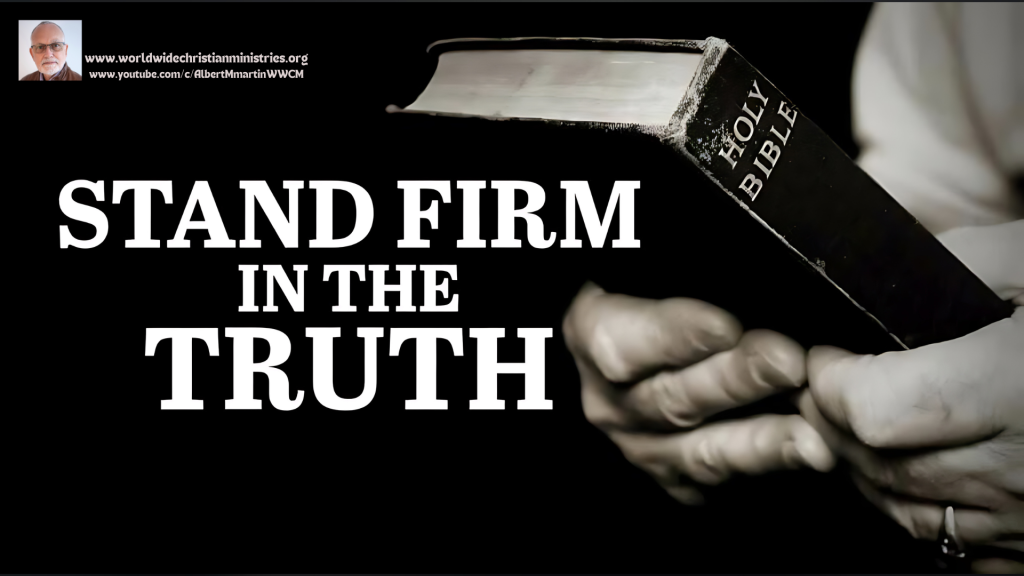
As we gaze into the mirror, let the words of James 1:23-24 resonate in our hearts – “Anyone who listens to the word but does not do what it says is like someone who looks at his face in a mirror and, after looking at himself, goes away and immediately forgets what he looks like.” These verses serve as a powerful reminder that our Christian Walk must be more than mere reflection; it must be a life lived in active obedience to God’s Word. The great preacher Charles Spurgeon once said, “The gospel is a reasonable system, and it appeals to men’s understanding; it is a matter for thought and consideration, and it appeals to the conscience and reflecting powers.” As you consider your own faith journey, ask yourself –
- Are you living out the Gospel in a way that appeals to reason and conscience?
- Are you reflecting the love and truth of Christ in a manner that draws others to Him?
I ask myself the same question.
In a world that often prioritises inclusiveness, political correctness, and non-confrontation, it can be tempting to dilute the Gospel message to avoid offending others. The same is true of the Gospel. We don’t need clever arguments or persuasive words. We simply need to unleash the raw, transforming power of the cross and let it do its work.
It’s about proclaiming the truth of the Gospel with boldness and compassion, trusting that God’s Word will not return void – Isaiah 55:11. However, the temptation to blend in with the crowd and avoid confrontation is ever-present. You and I may find ourselves hesitating to share our faith, fearing that we might offend someone or be labelled as intolerant. The pressure to be politically correct and non-confrontational can be overwhelming, causing us to water down the truth of the Gospel.
But remember, Jesus Himself was not afraid to confront the religious and cultural norms of His day. He dined with tax collectors and sinners, much to the dismay of the religious elite Mark 2:15-17. He touched the untouchable, healed the sick, and welcomed the outcast. Jesus demonstrated a love that was inclusive, yet uncompromising in its commitment to truth.
However, as Christians, we must remember that the Gospel is inherently inclusive, transcending all barriers of race, gender, and social status. As William Carey, the father of modern missions, once declared, “Expect great things from God; attempt great things for God.” We must not shy away from proclaiming the truth of the Gospel, even when it challenges the norms and expectations of our culture.
The story of William Carey illustrates the importance of living out our faith with boldness and conviction. Despite facing numerous obstacles and opposition, Carey remained steadfast in his commitment to sharing the Gospel with those who had never heard it. He once famously stated, “I’m not afraid of failure; I’m afraid of succeeding at things that don’t matter.” As we together examine our own Christian Walk, let’s consider whether if we are pursuing the things that truly matter – the things that have eternal significance.
Spurgeon also reminds us, “The Word of God is like a lion. You don’t have to defend a lion. All you have to do is let the lion loose, and the lion will defend itself.” As you and I stand before the mirror, remember that the power of the Gospel lies not in your ability to defend it, but in its ability to transform lives. Trust in the inherent power of God’s Word, and let it guide our thoughts, words, and actions.
In your daily interactions, you may encounter individuals from all walks of life, each facing their own unique challenges and struggles. Like Carey, we are called to be a messenger of hope and love, sharing the inclusive message of the Gospel with all whom you meet.
This does not mean compromising the truth or avoiding difficult conversations, but rather, it means approaching others with compassion, understanding, and a willingness to listen.
Spurgeon eloquently captured this idea when he said, “The greatest enemy to human souls is the self-righteous spirit which makes men look to themselves for salvation.” As we engage with others, remember that it is not our own righteousness or perfection that draws people to Christ, but rather, it is His love and grace working through us.
Let’s embrace the inclusive love of Christ, while holding fast to the truth of His Word. Be Let’s be ready to engage in meaningful conversations, even when they are difficult or uncomfortable. And above all, trust in the transformative power of the Gospel to change lives and bring hope to a world in need. As Spurgeon once proclaimed, “If sinners be damned, at least let them leap to Hell over our dead bodies. And if they perish, let them perish with our arms wrapped about their knees, imploring them to stay. If Hell must be filled, let it be filled in the teeth of our exertions, and let not one go unwarned and unprayed for.”
Let this be the cry of our hearts as we live out our faith in a world that desperately needs the hope and truth of the Gospel. May our lives be a living testimony to the inclusive, transformative, and uncompromising love of Christ, and may we never forget the reflection of His glory that shines through you.
As we look at our reflection, consider the example of the early church. In Acts 4, Peter and John were brought before the religious authorities and commanded not to speak or teach in the name of Jesus. Despite the pressure to remain silent, they boldly declared, “We cannot help speaking about what we have seen and heard” Acts 4:20 how do we measure up to that benchmark. They understood that the truth of the Gospel was too important to be silenced, even in the face of opposition.
The Challenge of Consistent Outreach.
As the Church, we often display an enthusiastic fervour for activities such as praise, worship, and prayer gatherings. These practices are undeniably wonderful and necessary for our spiritual growth and connection with God. We find comfort and joy in lifting our voices in song, pouring out our hearts in prayer, and basking in the presence of the Holy Spirit. These moments of corporate worship are often the highlights of our week, leaving us feeling refreshed, renewed, and ready to face the challenges of life.
However, when it comes to stepping outside the comfort of our church walls and venturing into our communities to share the gospel – putting the “rubber to the road, Boots on the ground, Pedal to the metal,” so to speak, we often find ourselves hesitant and full of excuses. We rationalise our inaction with seemingly legitimate reasons such as “I don’t have enough time,” “I don’t know what to say,” or “I’m afraid of being rejected.” These excuses, while understandable, are still barriers that prevent us from fulfilling the Great Commission given to us by Jesus Christ himself in Matthew 28:19-20: “Go therefore and make disciples of all nations, baptizing them in the name of the Father and of the Son and of the Holy Spirit, teaching them to observe all that I have commanded you.”
The apostle Paul, in his letter to the Romans, emphasises the importance of sharing the gospel: “For I am not ashamed of the gospel, for it is the power of God for salvation to everyone who believes, to the Jew first and also to the Greek” Romans 1:16. Paul’s words challenge us to examine our own priorities and ask ourselves why we are willing to spend hours in worship but hesitant to spend even a fraction of that time sharing the good news with those who need it most.
Perhaps we, as the Church, have become too comfortable in our Christian bubbles, content with our own salvation and the fellowship of like-minded believers. We may have forgotten the urgency of the gospel message and the desperate need for salvation in a world filled with brokenness, pain, and sin.
It is time for us, as the Church, to confront our excuses head-on and recommit ourselves to the mission of sharing the gospel with our communities. We must be willing to step out of our comfort zones, to face possible rejection, and to trust in the power of the Holy Spirit to guide our words and actions.
Let’s never forget that our worship and prayer are incomplete until they overflow into a passionate pursuit of the lost, fulfilling the mission God has entrusted to us as His Church.
We must remember that our worship and prayer are not meant to be ends in themselves, but rather fuel for our mission to reach the lost and make disciples.
Moreover, we must recognise that sharing the gospel is not just the responsibility of missionaries and evangelists, but of every member of the Church. As 1 Peter 2:9 reminds us, “But you are a chosen race, a royal priesthood, a holy nation, a people for his own possession, that you may proclaim the excellencies of him who called you out of darkness into his marvellous light.” Each of us has been called and equipped by God to be a witness for Christ in our spheres of influence.
This may mean inviting a neighbour to a church service, sharing our testimony with a coworker, or volunteering at a local outreach ministry. It may involve supporting missionaries financially or even considering a short-term mission trip ourselves. Whatever form it takes, our commitment to sharing the gospel must be rooted in a deep love for God and a genuine concern for the eternal destinies of those around us.
As we step out in faith to share the good news of Jesus Christ, we can take comfort in the promise of His presence and power. In Acts 1:8, Jesus assures His disciples, “But you will receive power when the Holy Spirit has come upon you, and you will be my witnesses in Jerusalem and in all Judea and Samaria, and to the end of the earth.” The same Holy Spirit that empowered the early Church is still at work in and through us today.
Let us, as the Church, renew our commitment to the Great Commission, not just in word, but in deed also. Let us be willing to sacrifice our time, our resources, and our comfort for the sake of seeing lives transformed by the power of the gospel.
In doing so, we will experience the joy and fulfilment that comes from partnering with God in His redemptive work. As the apostle Paul writes in 1 Corinthians 15:58, “Therefore, my beloved brothers, be steadfast, immovable, always abounding in the work of the Lord, knowing that in the Lord your labour is not in vain.” May we, as the Church, be found faithful in this sacred calling, until the day when every knee shall bow and every tongue confess that Jesus Christ is Lord, to the glory of God the Father.
Lessons from the Past.
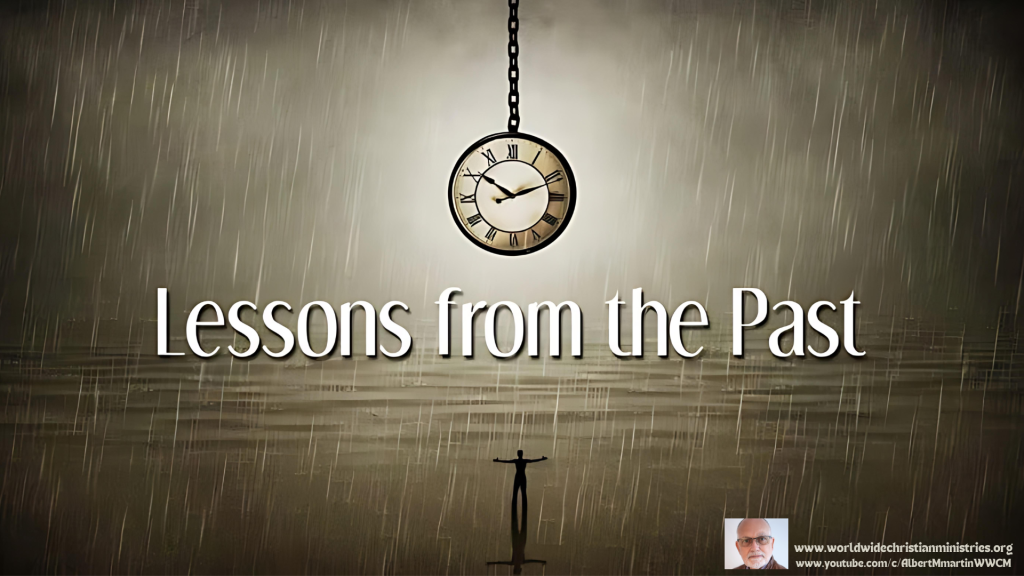
Transforming Personal Setbacks into Opportunities for Kingdom Growth – A Personal Reflection.
Years ago, I brought together a group of about fifteen people who devoted themselves to a training course on evangelism. They completed the course, which included practical outreach to the local community. The results were encouraging, we made many contacts and gathered valuable information that could have been the foundation for ongoing communication with the community. However, it all fell apart because we didn’t follow through. Despite the initial enthusiasm and effort, without consistent engagement and follow-up, the impact was lost. The disappointment and lack of corporate engagement and encouragement led to many missed opportunities to see folks coming to Christ.
This experience taught me, as an individual, the importance of perseverance and the need for a supportive community in outreach efforts. I learned that I can’t let my excitement die after a few weeks; it must become a sustained effort. While it’s easy to view this situation as a personal failure or disappointment, it’s crucial for me to recognise that these setbacks can be transformed into springboards for new opportunities and powerful challenges that bring forth a rich harvest of fruit for the Kingdom of God.
Instead of allowing this experience to discourage my future outreach attempts, I can use it as a valuable lesson for personal growth and to emphasise the significance of corporate engagement and encouragement. By reflecting on what I could have done differently to foster a more supportive and engaged community, I can develop strategies to ensure better follow-through and sustained engagement in future initiatives. This setback can serve as a catalyst for my own development and for building a stronger, more committed church community that actively participates in evangelism efforts.
Furthermore, this experience highlights the importance of building a strong support system within my personal network and the church community. By surrounding myself with accountability partners, mentors, and collaborators, I can create an environment that nurtures my long-term commitment to evangelism and encourages others to do the same. When I face challenges or setbacks, having a network of supportive individuals can provide the motivation and resources needed to persevere and transform disappointments into opportunities for personal growth and Kingdom impact.
While it’s disheartening to think about the missed opportunities to see people coming to Christ due to a lack of corporate engagement and encouragement, I must remember that these experiences can be transformed into powerful opportunities for growth and renewed dedication to sharing the love of Christ with others. By learning from my mistakes, developing a support system, and maintaining a spirit of perseverance, I can overcome obstacles, foster a more engaged church community, and witness a rich harvest of fruit for the Kingdom of God, while also growing as an individual and leader in ministry.
Leadership’s Role in Evangelism.
As we navigate the challenges and responsibilities of our roles as spiritual guides, it is imperative that we pause and reflect on our commitment to the Great Commission.
Pastors and church leaders play a crucial role in this. We must lead by example, either through direct involvement in outreach or by consistently encouraging and endorsing it within our congregations. This shouldn’t be a temporary initiative but an ongoing commitment. Jesus’ final instruction to His disciples was to “go and make disciples of all nations” Matthew 28:19. This Great Commission is not a seasonal campaign but a lifelong mission.
- This is not a task to be approached with a half-hearted attitude or a fleeting sense of obligation; rather, it demands our complete devotion and unwavering determination.
It is a fundamental truth that we reproduce after our own kind. As Leaders, in whatever form that takes, the example we set in prioritising and participating in evangelism, both personally and corporately, will have a profound impact on the kind of disciples we produce.
- If we fail to demonstrate a deep-rooted commitment to sharing the Gospel and reaching the lost, we cannot expect our congregations to embrace this vital aspect of our faith.
We must look within ourselves and ask the tough questions:
- Are we truly leading by example?
- Are we actively engaged in outreach, or do we simply offer empty platitudes about the importance of evangelism?
Congregations rely on us for guidance and inspiration, and it is our duty to embody what it means to be a faithful follower of Christ.
My dear friends, we must not allow ourselves to succumb to complacency or be sidetracked by the distractions of this world. Instead, let us fan the flames of passion within our hearts and renew our commitment to the sacred task of evangelism. Let us lead by example, both in our personal lives and in our corporate responsibility to the flocks entrusted to our care.
We must be the change we wish to see, actively engaging in outreach and demonstrating the importance of evangelism through our actions, not just our words.
Together, we have the power to make a lasting impact. We can be the hands and feet of Jesus, reaching out to the lost, the hurting, and the broken, showing them the path to salvation and the hope that can only be found in Christ.
It will not be an easy journey, but nothing of eternal value ever comes without sacrifice and perseverance. Let us embrace the challenge and step out in faith, knowing that God is with us every step of the way, equipping us with the strength and wisdom we need to fulfil His purposes.
Cast you mind back to the tumultuous early days of the church when believers faced unthinkable persecution and chaos. Amidst the violence and turmoil, God’s focus never wavered from His mission to draw lost souls into His loving embrace. This powerful image serves as a poignant reminder of the relentless love of our Saviour, who leaves no stone unturned in His pursuit of the one lost sheep Luke 15:4.
As we ponder this profound truth, let us take a moment to examine our own hearts.
- Do we possess that same burning passion for the lost?
- Does the thought of countless individuals living and dying without experiencing the transformative love of Christ keep us awake at night, our hearts heavy with the weight of their eternal destiny?
These are not easy questions to confront, but they are essential if we are to fulfil our calling as spiritual leaders.
Like the celebrated Shepherd abandoning all in His relentless pursuit of the one lost and wandering lamb, our God will not be contained, will not be distracted, or deterred from His single-minded quest to embrace those who are lost and alone.
The words of the Master Himself echo through the ages, piercing our complacent conscience: “What man among you, if he has a hundred sheep and has lost one of them, does not leave the ninety-nine in the open pasture and go after the one which is lost?”
The challenge detonates in the depths of my spirit on a personal basis, shattering the brittle veneers of my self-justification.
- Do I burn with that same untamed desperation to pursue those separated from the radiant love of Christ?
- Does the anguished thought of men and women perishing in isolation from intimacy with their Maker lash me awake in the midnight hours with groans too deep for words?
So, my beloved brothers and sisters, let us rise to the occasion. Let us be the leaders God has called us to be, tirelessly working to fulfil the Great Commission and build His kingdom here on earth. The road ahead may be fraught with obstacles and setbacks, but the rewards are beyond measure. Let us press on, knowing that our labour in the Lord is never in vain 1 Corinthians 15:58 and that the lives we touch will have an eternal impact.
As we embark on this journey together, let us support and encourage one another, lifting each other up in prayer and standing united in our common purpose. May we be a shining example of what it means to live out our faith with boldness, compassion, and unwavering commitment. Let us reproduce after our own kind, raising up a generation of disciples who are passionate about sharing the love of Christ with a world in desperate need of His saving grace.
The Power of Personal Encounters.

The Ethiopian Eunuch – A Catalyst for Transformation and a Call to Action.
My fellow Brothers, Sisters, and Leaders, I implore you to heed the urgent call that resounds through the ages in the story of Philip and the Ethiopian eunuch. This remarkable figure, encountered by Philip on the desert road to Gaza, went on to become a beacon of the gospel in Africa. His story is a profound reminder of the far-reaching impact that a single act of evangelism can have. It challenges us to be ever-vigilant, open to the guidance of the Holy Spirit, and ready to share the good news with those we encounter. This is not merely a historical account, but a living, breathing message that speaks directly to our hearts and our mission as followers of Christ in this present hour.
What Do We Learn from Philip’s Encounter with the Ethiopian?
Philip’s encounter with the Ethiopian eunuch teaches us two major lessons:
1. The Ripple Effect of Faith.
The Ethiopian eunuch’s encounter with Philip, as recorded in Acts 8, is a powerful testament to the transformative power of the gospel. Here was a man of significant stature and influence, the treasurer of the Kandake (queen) of the Ethiopians, who was seeking truth. Despite his high position, he was humble and open-hearted, reading the Scriptures and yearning for understanding. Philip, guided by the Holy Spirit, seized this divine opportunity to explain the good news about Jesus. The eunuch’s immediate response was to be baptized, and he went on his way rejoicing, presumably carrying the gospel back to his homeland.
This narrative underscores a vital truth, that being “The Power of Encounters.” You see, we never know how God might use someone you share the gospel with. The Ethiopian eunuch’s conversion and subsequent evangelism in Africa exemplify how a single encounter can set off a chain reaction of faith, bringing light to entire communities and regions.
Each and every day, the Holy Spirit is orchestrating divine appointments, placing before us souls that are ripe for harvest. These are the Powerful Encounters that hold the potential to transform lives, communities, and even nations for the glory of God. This ripple effect of faith is a powerful reminder of the profound impact our individual actions can have. Just as a single pebble creates ripples across a pond, so too can one act of sharing the gospel create waves of transformation across lives and communities.
Picture this if you will. Here is a high-ranking official in a powerful kingdom, journeying home with newfound faith and joy, his heart ablaze with the truth of Christ. Imagine the impact as he shares this transformative message with others in his sphere of influence. One man’s conversion could ignite a movement, spreading hope and salvation like wildfire through a land thirsty for spiritual truth. This is the potential power of every encounter we have each conversation, each act of kindness, each step of obedience to the Spirit’s leading can set off a cascade of divine change.
2. The Need to Be Attentive and Bold.
As modern-day disciples, we are called to emulate Philip’s sensitivity to the Holy Spirit. Opportunities to share the gospel often come in unexpected moments and unlikely places. The key is to be attentive and responsive. Philip didn’t hesitate when the Spirit told him to go to the chariot. He ran to it, eager to fulfil his divine appointment.
Yet all too often, we find ourselves distracted, our eyes blind to the opportunities that the Spirit has laid at our feet. We become consumed by the cares of this world, by pursuits both legitimate and frivolous, and in doing so, we risk missing the very encounters that could set the world ablaze with the light of the Gospel. I urge you, do not let these moments pass you by!
Consider the urgency with which Philip acted. He didn’t walk or saunter; he ran to the chariot. His heart was tuned to the urgency of the Spirit’s call. This is the kind of responsiveness and zeal we must cultivate in our own lives. We cannot afford to be complacent or distracted. We must be ready, at a moment’s notice, to share the life-saving message of Jesus Christ with those around us.
We, too, must be bold and proactive. In a world rife with uncertainty and searching souls, the need for the gospel is urgent. People are ready to hear the message of hope and salvation. Really, I’m not joking, they truly are. The readiness and openness to receive the gospel are often greater than we realise.
The fields are white unto harvest, the need is urgent, and the time is now. We must cultivate a heart that is ever attentive to the whispers of the Holy Spirit, a mind that is alert and ready to perceive the divine opportunities that come our way. We must be bold like Philip, quick to obey the promptings of the Spirit, ready to run with passion and purpose to the chariots that cross our path.
This is why it is crucial for us to seize every opportunity, to step out in faith, and to share the life-changing message of Jesus Christ with those around us. Jesus himself highlighted this urgency in Matthew 9:37, saying, “The harvest is plentiful, but the workers are few.” This is a clarion call for us to rise to the occasion, to be those workers who step into the fields ripe for harvest. The urgency of the gospel is not merely a call to action but a call to a lifestyle of constant readiness and responsiveness to the Holy Spirit.
For in each of these Powerful Encounters lies the potential for a ripple effect of grace that could transform countless lives. A single conversation, a word spoken in due season, a seed planted in faith – these are the sparks that can ignite a blaze of revival.
So, I challenge you, my brothers, and sisters, to rise up and seize the day! Let us not be found sleeping or distracted in this crucial hour. Let us fix our eyes on Jesus, tune our hearts to the frequency of the Spirit, and step out in bold obedience to share the life-changing message of the Gospel at every turn.
For in doing so, we will not only see lives transformed, but we will hasten the day of our Lord’s return. May we be found faithful, attentive, and ablaze with the passion of the Spirit in this generation and in the ages to come. The Powerful Encounters await – let us run to meet them with unwavering faith and unbridled zeal!

Answering the Call.
Imagine a world where every believer is as attentive and responsive as Philip. A world where the gospel spreads like wildfire, touching hearts and changing lives. This is not a distant dream; it is a reality that can unfold through our obedience and faithfulness. As we go about our daily lives, let us remain sensitive to the prompting of the Holy Spirit, ready to share the gospel at every opportunity. By doing so, we participate in the divine mission of spreading the light of Christ to a world in desperate need. The ripple effect of our faith can reach far and wide, transforming not only individual lives but entire societies.
We need however to – Seize the Moment – Now is the time to act. Now is the time to embrace our calling as ambassadors of Christ. Let us seize the moment, recognising that every day presents new opportunities to share the gospel. Let us be the bold, attentive, and passionate workers in God’s harvest field, bringing in a bountiful harvest for His glory. Together, we can create a legacy of faith that will echo through eternity, transforming lives and communities with the life-giving power of the gospel.
Every Person Matters to God.
Remember, every person you meet matters deeply to God. They could be the next Philip, spreading the gospel to places you can’t reach. Our job is to be faithful and share the message, trusting God to work in their hearts. Proverbs 11:30 says, “The fruit of the righteous is a tree of life, and the one who is wise saves lives.” Each interaction we have is a seed planted, and God promises that those who sow with tears will reap with songs of joy Psalm 126:5-6.
The True State of Our Hearts.

Reflecting on Psalm 126:5-6, which says, “Those who sow with tears will reap with songs of joy. Those who go out weeping, carrying seed to sow, will return with songs of joy, carrying sheaves with them” we find a profound truth. Our tears for the lost reveal the true state of our hearts. Weeping for the lost signifies a deep, heartfelt compassion that transcends mere duty. It shows that we are not just performing a religious task, but that we genuinely care about the eternal destiny of those around us.
However, this kind of brokenness often contradicts the persona we project. In our culture, we value strength, self-sufficiency, and independence. We want to be seen as having it all together. But in God’s kingdom, brokenness and compassion are signs of true spiritual strength. When was the last time we wept for a friend, a family member, or a neighbour who doesn’t know Christ? Do our hearts break for what breaks God’s heart? Jesus wept over Jerusalem, showing His deep compassion for the lost Luke 19:41. Are we willing to be vulnerable and let our compassion drive us to action?
In essence, our willingness to weep for the lost exposes our true spiritual condition. It challenges us to move beyond superficial interactions and to invest deeply in the lives of those around us. It means allowing ourselves to be moved by the same compassion that drove Jesus to the cross, where He provided the ultimate.

